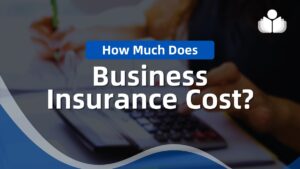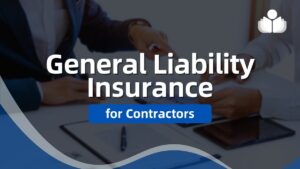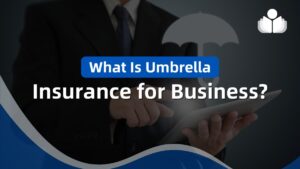Business income insurance, often called business interruption insurance, offers a financial lifeline by covering lost income when a company’s physical assets suffer damage, preventing normal operations due to specific risks outlined in your policy.
These policies prove invaluable during prolonged shutdowns. They ensure you can still pay your team, settle rent, and keep essential services running.
Typically bundled with property and liability insurance in a business owner’s policy, these coverages usually cost less than acquiring them separately. You might tack on an endorsement or rider to a commercial property policy, securing income protection against losses tied to property damage.
>> Explore NEXT for Comprehensive Coverage >>
Understanding the Business Income Definition
Business income insurance, also called business interruption insurance, steps in to offset lost business income when unforeseen events halt operations under covered perils. Examples of such perils include:
- Fire
- Theft
- Wind
Imagine your restaurant’s kitchen goes up in flames. You’d have to shut down to manage the repairs. This insurance helps manage the financial strain by covering lost income and ongoing expenses during interruptions.
To grasp the full scope of your business income insurance coverage, it’s crucial to familiarize yourself with the key terms used in the policy.
- Actual loss sustained: You receive monetary compensation from your insurer for the genuine income your business loses.
- Business income: This includes the earnings your business would normally generate through its usual operations.
- Period of restoration: This term refers to when your business cannot function post-disaster.
- Waiting period: This is the duration that must elapse after a covered peril occurs before your business income coverage kicks in.
- Extra expense: Sometimes, you may face additional costs if your business needs to relocate temporarily for repairs or if you require expedited shipping to replace business inventory.
- Service interruption/Contingent business interruption (CBI): This covers losses if your business halts operations or shuts down due to a critical supplier or partner facing a loss or if a utility disruption occurs because of damage to a utility company’s property.
- Interruption by civil authority: Civil or military orders may force your business to close in natural disasters. Depending on your policy specifics, your business income insurance might cover the income lost during such enforced closures.
>> Get Your Business Insured With NEXT! >>
What Does a Business Income Policy Cover?
Your business income coverage, or business interruption or extra expense coverage, steps in to cover lost income if you abruptly shut down your business. This protection extends beyond what general commercial property insurance offers.
Your policy might also feature extended business income coverage, which helps shield your business from financial setbacks during a slowdown after reopening.
Consider this scenario: mending your restaurant after a kitchen fire took four months. Once you reopened, sales were slower than before the fire-induced closure. Extended business income coverage would help compensate for the reduced revenue during this recovery period.
Examples of Business Income Coverage
To better grasp how business income coverage can replace your lost income, let’s look at these examples:
- Imagine your candy shop shares a building. A fire ignites in the adjacent store and quickly spreads to yours, forcing you to close for repairs.
- Or picture this: you lock up your computer store for the night, but burglars break in and make off with crucial inventory. You find yourself needing to shut down temporarily to restock.
- Now, think about a hurricane sweeping through your area, inflicting severe wind damage on the building housing your sports equipment store. You have no choice but to cease operations to fix the damages.
- The compensation you receive from your business income coverage will depend on your business’s income and expense records. Keep these records safe, perhaps even storing them off-site or digitally, to ensure you can substantiate your claim when needed.
What Isn’t Covered by Business Income?
Business income insurance doesn’t cover lost income from:
- Closures due to inoperable power lines, though adding an endorsement to your policy might cover this
- Losses stemming from closures caused by damages your insurance policy doesn’t cover
- Undocumented income
- Also, business income insurance might only cover some of your business utilities
Which Businesses Can Benefit From Coverage?
Business owners with physical locations that offer products and services or those who use equipment or other types of property to generate income, generally benefit from this type of coverage. For instance, the owners of a coffeehouse, a barbershop, and a car rental agency could all face income loss if their properties were damaged.
How Long Does Coverage Last?
Your policy will cover specified expenses for a designated number of days, known as the period of restoration. Typically, this period is 30 days, but according to the Insurance Information Institute, it can extend to 360 days.
There’s usually a waiting period between the occurrence of property damage and the start of the restoration period. This waiting period can vary from 24 to 72 hours, depending on the specifics of your policy.
What Factors Affect My Premium?
Like many insurance products, insurers use a risk assessment to set your premium. This assessment considers several factors:
Coverage amount: This is typically based on your projected income for the next 12 months and how long it might take to repair your property and reopen. Higher coverage amounts lead to higher premiums.
Type of business: Different businesses face different risks. For instance, a restaurant with a higher fire risk usually pays more than a shoe store.
Number of employees: Businesses with more employees tend to pay more in premiums.
Location: If your business is in a region prone to severe weather, such as high winds or storms, you’ll likely face higher premiums than a more temperate area.
Prior claims history: Businesses that have previously made claims on business income insurance will see higher rates.
Additional Options and Endorsements
Insurance policies often differ in terms of coverage and options, but you might add the following enhancements to broaden your coverage for business interruptions:
Dependent Properties Coverage
Also known as dependent properties coverage, contingent business interruption insurance safeguards against the loss of business income from damage to property you rely on but do not own. For instance, this coverage could be vital if a fire destroys your primary supplier’s warehouse, preventing you from producing your products.
The damage could affect the properties of your suppliers, buyers, or service providers, such as their manufacturing locations. It can also apply to anchor stores, venues, or other entities that attract customers to your area, directly impacting your business operations.
Extra Expense Coverage
Extra expense coverage can be a critical addition to your policy, designed to handle costs that aren’t part of your usual operating expenses. This might involve renting a temporary business space, leasing equipment, covering additional payroll expenses for overtime or hiring new employees, and other costs your business income insurance doesn’t typically cover.
This type of coverage ensures you can maintain operations during unforeseen disruptions, helping to mitigate the financial impact on your business.
Utility Services Endorsement
This endorsement could cover lost income from disruptions to essential utilities like electricity, gas, or water services. Such coverage is crucial for maintaining financial stability when unexpected utility issues halt your business operations.
Civil Authority Coverage
This coverage kicks in when a local, state, or federal government entity restricts access to your premises due to damage to nearby property you don’t own. It provides financial protection by covering lost income when access to your business is limited or denied, ensuring continuity even when external circumstances impact your operations.
>> Ensure Your Business Future With NEXT >>
What Else Should You Know?
Review Your Policy Thoroughly
Details matter significantly, especially for insurance. It’s crucial to understand what’s covered before you commit to a policy rather than discovering gaps in coverage when it’s time to file a claim. Review the information thoroughly:
- Specific events that trigger coverage
- Causes of loss not covered
- Income and operating expenses
- Period of restoration
- Waiting period
Understand the Waiting Period
If the policy you’re considering includes a waiting period, it’s important to dig deeper into the details. Find out if you’ll be responsible for any losses incurred during this 24 to 72-hour period or if the insurance will start covering losses from the shutdown’s first day after the waiting period has elapsed.
Suppose losses aren’t covered during the waiting period. In that case, you can shorten it, potentially reducing the financial impact on your business during the initial days of an interruption.
>> Insure Your Business With NEXT >>
Best Insurance Companies for Your Business
- Quickly obtain a quote and purchase a policy online within minutes
- Easily access and distribute your certificate of insurance online
- NEXT provides preliminary pricing information online, allowing you to estimate costs before requesting a full quote
- Lacks availability of certain specialized types of coverage, such as key person insurance or directors and officers insurance
NEXT’s general liability insurance premium provides unique, affordable solutions to damage claims quickly. Typically, an insurance adjuster evaluates the damages and reaches a decision just two days after the complaint is lodged.
If you share details about your LLC with NEXT, the company can quickly identify the policies that best suit your needs and provide a quote within minutes. You can complete the purchase online, offering convenience and efficiency.
However, calling an insurance agent is always an option if you need help. You can access and share your certificate of insurance online whenever necessary.
- Professional liability policies provide coverage for work conducted globally
- Industry-specific packages simplify the selection process, helping business owners easily identify necessary coverage
- Ability to quickly obtain a quote and purchase a general liability policy online
- Hiscox business owner’s policies aren’t available in every state
Hiscox is a top choice due to its competitive pricing and comprehensive coverage. Known for its cost-effectiveness, Hiscox offers affordable premiums that help you manage your budget efficiently while securing the necessary coverage.
Their cheap general liability insurance policies encompass a range of protections, including bodily injury, property damage, and personal injury claims, making it a smart option for safeguarding your business interests.
- Higher-than-average customer satisfaction ratings for auto insurance shopping
- Offers free benefits such as new car replacement with AARP auto insurance policies
- Receives more complaints than expected for its auto insurance policies
Hartford is one of the best small business insurance companies. It’s tailored to companies ranging from small enterprises to large corporations.
They offer a user-friendly online portal where policyholders can effortlessly obtain quotes, amend policies, request insurance certificates, and monitor claims. Hartford facilitates the convenience of filing claims online, even for those without an account.
While small businesses can begin the quote process online, completing the application might necessitate help from an agent. Hartford’s website provides several ways to get started, including direct contact, a contact form, or connecting with a local independent agent, ensuring support is always within reach.
What Is Business Income Insurance? – FAQs
>> Ensure Your Business’s Future With NEXT >>
The Bottom Line – Business Income Insurance
Business income insurance is a crucial safety net for any company. It shields against financial losses when normal operations are disrupted. This type of coverage assists businesses in covering ongoing expenses and compensating for lost profits when they cannot operate fully due to natural disasters or fires.
Investing in business income insurance is a strategic move, ensuring that a company remains financially viable during unexpected closures. This helps stabilize cash flow and provides essential support for recovery and continuity. For businesses aiming to secure their future, acquiring business income insurance is more than an option, it’s a vital strategy.
 Sections of this topic
Sections of this topic



















